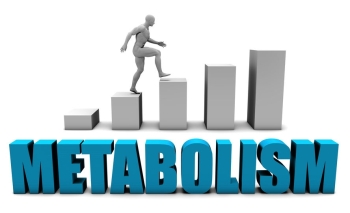
Metabolism: the burning of fat and calories.
Metabolism refers to the chemical processes that occur within the body to maintain life. These processes include the breakdown of nutrients from food and the conversion of those nutrients into energy, as well as the maintenance and repair of cells and tissues.
There are two main types of metabolism: catabolism, which breaks down molecules to obtain energy, and anabolism, which uses energy to build molecules.
The basal metabolic rate (BMR) is the amount of energy expended by the body at rest, and it is used to calculate the number of calories needed for an individual to maintain their current weight. Factors that can affect BMR include age, sex, weight, muscle mass, and hormonal balance.
Some people have a faster metabolism which means they burn calories at a faster rate than others, and some have a slower metabolism. This can be influenced by genetics, muscle mass, and lifestyle factors such as physical activity and diet.
In general, a healthy metabolism is important for maintaining a healthy weight, and it can also play a role in preventing chronic diseases such as diabetes, heart disease, and cancer.
As people age, their metabolism tends to slow down. This is partly due to changes in muscle mass and hormone levels.
Muscle mass is an important factor in metabolism because muscle tissue burns more calories than fat tissue. As we age, we tend to lose muscle mass, which can slow down our metabolism.
Hormones also play a role in metabolism. As we age, our levels of hormones such as thyroid hormone and testosterone decline, which can also contribute to a slower metabolism.
Additionally, older adults may become less active, which can also lead to a decrease in metabolism. Regular physical activity is important to maintain muscle mass and to boost metabolism.
All of these factors can lead to a decrease in metabolism with age, which can make it more difficult to maintain a healthy weight. However, it is still possible to maintain a healthy metabolism by eating a well-balanced diet, staying active, and engaging in regular physical activity.
It's also worth noting that not everyone will experience the same changes in their metabolism as they age, some people may not experience changes at all. There are a lot of factors that can affect metabolism, including genetics, lifestyle and overall health.









